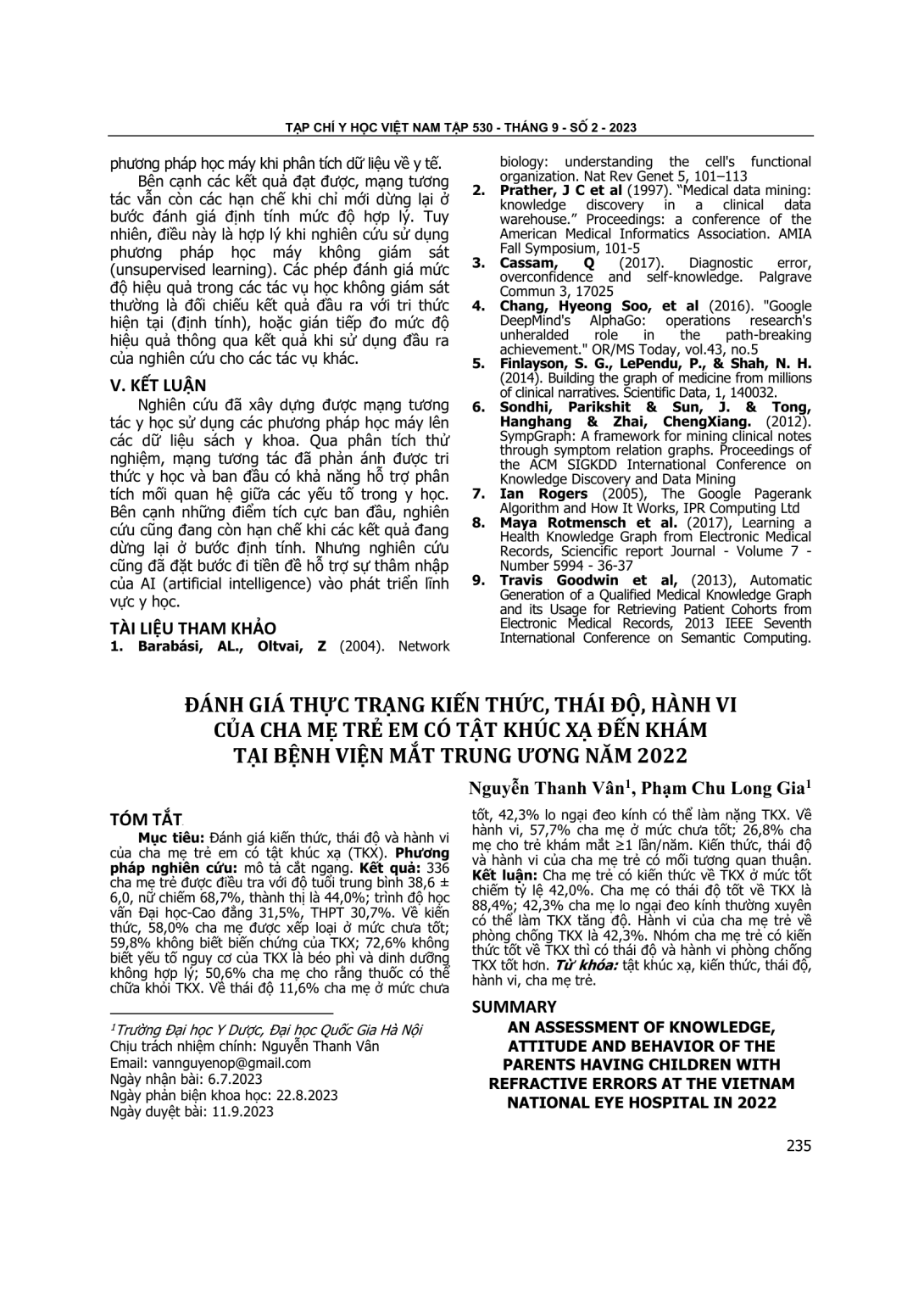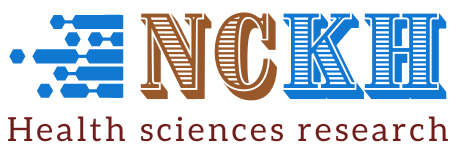
Đánh giá kiến thức, thái độ và hành vi của cha mẹ trẻ em có tật khúc xạ (TKX). Phương pháp nghiên cứu: mô tả cắt ngang. Kết quả: 336 cha mẹ trẻ được điều tra với độ tuổi trung bình 38,6 ± 6,0, nữ chiếm 68,7%, thành thị là 44,0%; trình độ học vấn Đại học-Cao đẳng 31,5%, THPT 30,7%. Về kiến thức, 58,0% cha mẹ được xếp loại ở mức chưa tốt; 59,8% không biết biến chứng của TKX; 72,6% không biết yếu tố nguy cơ của TKX là béo phì và dinh dưỡng không hợp lý; 50,6% cha mẹ cho rằng thuốc có thể chữa khỏi TKX. Về thái độ 11,6% cha mẹ ở mức chưa tốt, 42,3% lo ngại đeo kính có thể làm nặng TKX. Về hành vi, 57,7% cha mẹ ở mức chưa tốt; 26,8% cha mẹ cho trẻ khám mắt ≥1 lần/năm. Kiến thức, thái độ và hành vi của cha mẹ trẻ có mối tương quan thuận. Kết luận: Cha mẹ trẻ có kiến thức về TKX ở mức tốt chiếm tỷ lệ 42,0%. Cha mẹ có thái độ tốt về TKX là 88,4%; 42,3% cha mẹ lo ngại đeo kính thường xuyên có thể làm TKX tăng độ. Hành vi của cha mẹ trẻ về phòng chống TKX là 42,3%. Nhóm cha mẹ trẻ có kiến thức tốt về TKX thì có thái độ và hành vi phòng chống TKX tốt hơn.
To evaluate knowledge, attitudes and behaviors of parents having children with refractive errors. Research method: cross-sectional descriptive statistics. Results: A sample of 336 surveyed parents has an average age of 38,6±6,0, 68,7% of the sample are female; the ratios of the parents living in urban areas are 44,0%; the shares of the parents having education levels of university - college and high school are 31,5% and 30,7%, respectively. Regarding knowledge, 58,0% of the sample are not at a good level; 59,8% of the parents don’t know complications of refractive errors; 72,6% of the parents don’t know that obesity and improper nutrition are risk factors of refractive errors, 50,6% of the parents think that taking medication can cure refractive errors. Regarding attitude, 11,6% of the parents are not at good level, 42,3% of the parents are concerned that wearing glasses can make refractive errors worse. Regarding behavior, 57,7% of the parents are at not good level, 26,8% of the parents give their children to take an eye exam at least once a year. The parents’ knowledge, attitude and behavior of parents have a positive correlation. Conclusion: The parents have good knowledge about refractive errors accounting for 42.0%. Parents with a good attitude about refractive error is 88.4%; 42.3% of parents are concerned that regular glasses can increase refractive error. The behavior of young parents on prevention of refractive errors is 42.3%. The group of young parents with good knowledge about refractive errors have better attitudes and behaviors to prevent refractive errors
- Đăng nhập để gửi ý kiến
